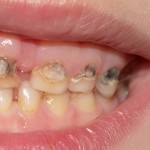
While childhood caries levels have fallen in some countries it still affects between 30-50% of children in high income countries and up to 90% in low- and middle-income countries. The need for caries prevention therefore remains and one behavioural change approach, motivational interviewing is considered to be valuable, particularly in socially-disadvantages populations.
The aim if this review was to assess whether motivational interviewing is effective in the prevention of early childhood caries (ECC).
Methods
Searches were conducted in the PubMed, Embase, Virtual Health Library, Scopus, Cochrane Central Register of Controlled Trials, Web of Science, LILACS and Google Scholar databases. Parallel, cluster or community based randomised controlled trials (RCTs) were considered. The primary outcome was new carious lesions, secondary outcomes included caregivers’ oral health knowledge, home-care behaviours, plaque index, gingival index and fluoride varnish applications. Papers were screened independently by two reviewers, data extracted, and risk of bias assessed using the Cochrane domains-based approach. Mean differences were calculated for each study and a random effects meta-analysis carried out.
Results
- 14 studies were included with 8 contributing to the meta-analysis.
- Of the 8 studies, 3 were at low risk of bias, 1 at unclear risk and 4 at high risk.
- Studies were conducted in Australia, Brazil, Canada India, Iran, Thailand and the USA.
- Follow up periods ranged from 4 weeks to 3 years.
- Motivational interviewing had a protective effect for caries in 4 studies
- Subgroup analysis indicated that population caries experience modified the effect of MI-based intervention.
- In high caries populations the MI-based approach prevented an average of -3.15 (95%CI; -6.14, -0.17) dmfs in young children [ 3 studies].
- In low caries populations smaller dmfs reductions were seen, -0.31 (95%CI; -0.63, 0.00) [5 studies].
Conclusions
The authors concluded: –
Preventive approaches based on motivational interviewing were effective in the prevention of ECC and may be recommended as part of preventive approaches, especially for populations with a high disease burden. The studies produced in this field have a wide methodological variety and there is a need to evaluate this approach in populations at high risk of caries, seeking to clarify the effect modification identified in the present review.
Comments
The authors have searched a good range of databases restricting studies to those in children under the age of 6. In their eligibility criteria than also mention pregnant women and mothers as part of the population. The main outcome is early childhood caries so it would have been helpful to have more discussion of the interventions. For example, whether it was parent directed or parent-child dyad directed.
We have previous looked at a broader study of motivational interviewing for overall paediatric health (Dental Elf – 17th Aug 2017) which included 4 studies on oral health only 2 of which are included in this current review. That earlier review suggested there was evidence to support the use of parent-involved motivational interviewing, but more studies were needed. A more recent Cochrane review (Dental Elf – 25th Nov 2019) looked at the effects of interventions with pregnant women, new mothers or other primary caregivers of infants in the first year of life, for preventing early childhood caries. This review found moderate certainty evidence the providing advice did reduce the risk of ECC. However, the evidence to support which type of intervention might be most effective was or low-to very low certainty.
This new review has focused on interventions based on motivational interviewing or its principles. The authors did note that the interventions were delivered by a range of individuals from members of the dental team to master-level therapists and lay people in the community which may impact on the findings. The authors also highlight the diverse range of interventions provided to control groups from no interventions to videos. The need to prevent caries particularly in the primary dentition remains as does the need for clear reporting of interventions components, delivery and settings and outcomes in future high quality studies in order to be able to deliver the most effective interventions.
Links
Primary Paper
Colvara BC, Faustino-Silva DD, Meyer E, Hugo FN, Celeste RK, Hilgert JB. Motivational interviewing for preventing early childhood caries: A systematic review and meta-analysis. Community Dent Oral Epidemiol. 2020 Sep 30. doi: 10.1111/cdoe.12578. Epub ahead of print. PMID: 33000877.
Other references
Dental Elf – 25th Nov 2019
Dental Elf – 5th Nov 2018
Oral hygiene advice: insufficient evidence for best way of providing one to one advice
Dental Elf – 17th Aug 2017
